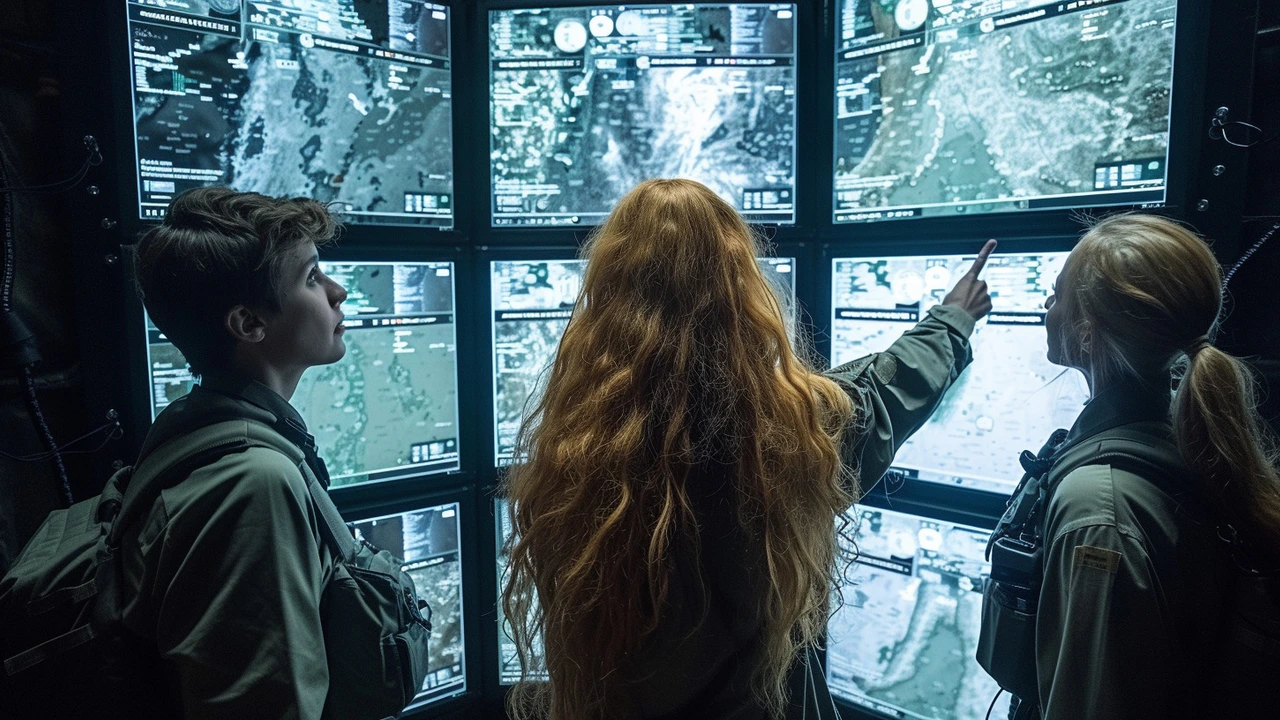The ChatGPT Effect: A New Dawn in Propaganda Studies

The Unveiling of the ChatGPT Effect
We've all heard of robots taking over jobs in factories, drones delivering packages, and virtual assistants like Siri and Alexa who can remind us of our appointments, predict the weather and even tell us jokes. But how often have we given thought to the broader implications of these advancements? It was during a late-night chat when Bella, my Siamese cat, was persistent on hunting imaginary insects that a question sprung in my mind: how do machines understand and produce human language?
That unquiet night, paired with my curious nature, took me down a rabbit hole in the world of chatbots, particularly ChatGPT, developed by OpenAI. From the realm of AI, ChatGPT’s software is arguably rampaging into the unpredictable world of opinions, beliefs, and - you bet - propaganda studies. Digging deeper, I quickly found myself in the unfamiliar territories of computational propaganda, social bots and the ever-changing dynamics of online discourse. Join me, dear readers, as we unravel this crucial piece of our AI-integrated future!
Understanding the ChatGPT Effect
Before we unveil how ChatGPT is influencing propaganda studies, let's take a step back and try to understand the beast that we're dealing with. Just as my golden retriever, Benji, is eager to fetch the ball, ChatGPT is eager to fetch valuable information and generate responses that are eerily human-like. Inspired by a model called GPT (Generative Pretrained Transformer), OpenAI developed ChatGPT to generate human-like text responses based on given inputs. Its uncanny capability of simulating human conversation is quite the talk around the world, changing the premises of propaganda studies.
To provide a layman's analogy, ChatGPT’s brain, much like its AI contemporaries, is akin to an enormously complex version of a “Chinese Whisper Game”. The inputs are interpreted, the data scoured, and even a single word can significantly alter the message to be delivered. As this game proceeds, the scenarios get increasingly convoluted and hard to anticipate, reminiscent of the challenges one might face parenting two adventurous kids like my Graham and Adela.
The Reshaping of Propaganda Studies
The so-called "ChatGPT Effect" has turned propaganda studies on its head. In the past, propaganda was quite straightforward to study. Misinformation mostly spread unidirectionally through newspapers, broadcasts, or speeches. However, today, propaganda often takes a deviously convoluted one-to-many, many-to-one, or indeed many-to-many form. Aided by entities like ChatGPT, misinformation isn’t just spread; it adapts, moulds, and becomes unpredictable to contain.
This unpredictable nature reminds me of the time when Graham decided to fill the family pool with garden soil, hoping to build his Amazon rainforest. While his enthusiastic endeavour was an unexpected turnaround, it became even more challenging to handle when Adela was inspired to sprinkle seeds and add worms into this mix! Much like how my kids turned our backyard into a wildlife project, AI like ChatGPT is reshaping the landscape of propaganda studies.
Embracing the ChatGPT Influence
Living with the ChatGPT Effect might sound alarming and sometimes, it appears that we are bracing for the rise of a technological Frankenstein. However, it's worthwhile to note how we can influence the shaping of this bot-developed narrative. The world of propaganda studies can indeed embrace this change and adapt to its dynamics, much like how I had to embrace the enthusiasm of my kids.
Hermits of the old world have evolved into technologically articulate hermits, sitting behind screens while crafting impactful political and social narratives. The guidance provided by these role models is akin to having a torchlight in a nocturnal forest hunt. Thinking on similar lines, researchers can redesign their methodologies and strategies to adapt to this evolutionary dissonance, in turn, enhancing the workings of propaganda studies.
Challenges in the Roadmap to Adaptation
Similar to toilet training my then puppy Benji, adapting to the dynamic ways of the ChatGPT Effect does bring its challenges. Understanding and predicting the behavioural pattern of AI like ChatGPT can feel like predicting the flight path of a butterfly – it's not impossible, but it requires a degree of expertise. Notably, there's a genuine struggle for researchers in tracking the sources of misleading information and measuring the dispersion of invasive narrative structures.
The recognition of these challenges is critical, just like how I had to acknowledge that I'd be finding patches of soil and worms in my house for weeks after my kids' rainforest project. Yet, much like those muddy patches were an indication of my kids' immense creativity and curiosity, these challenges in propaganda studies present an opportunity for innovation and improvisation.
A Look into the AI-Empowered Future
Whether we like it or not, AI's voice in our discourse will grow louder. Quite like how the innocent chatter of my kids has evolved into the formation of intelligent opinions and views, AI like ChatGPT have gestated from echoing simplistic remarks to articulating elaborate opinions. Hence, the arena of propaganda studies can no longer afford to ignore the ChatGPT effect. Taking parallels from my journey of parenthood, adaptation, acceptance, and improvisation can be the keys to overcome the challenges that this dynamic transition brings.
While as unexpected as Bella mysteriously finding her way into my closet, the advancements in AI technology like ChatGPT are here to stay. As we've learnt, understanding these advancements is imperative to adapt and thrive in this era. So, let’s embark on this journey together, learning, growing, and reshaping our knowledge in tandem with the technological leaps. Because, after all, we are all storytellers in our way, and it seems this AI bot wants a piece of the action too!



